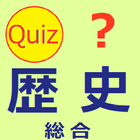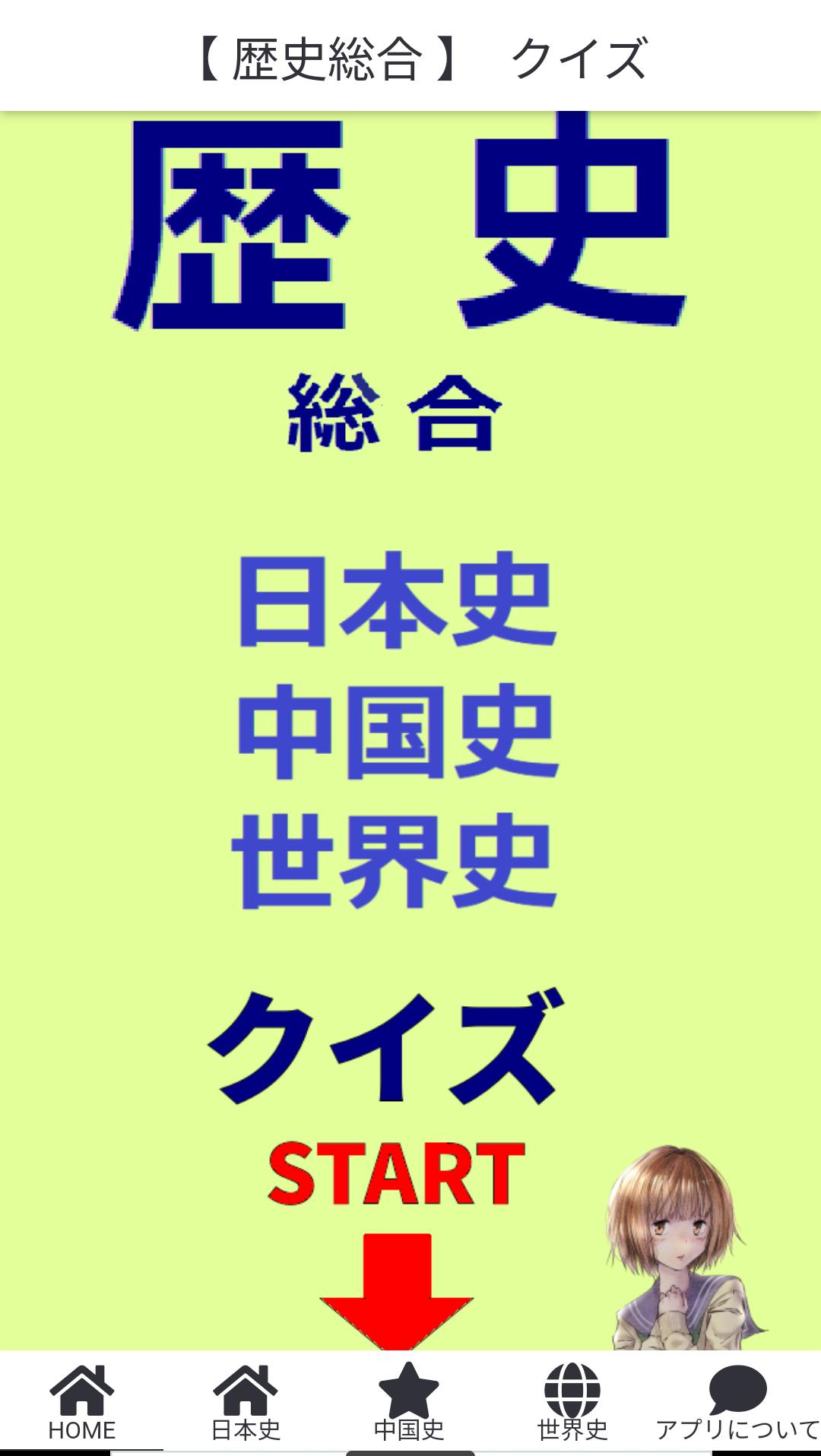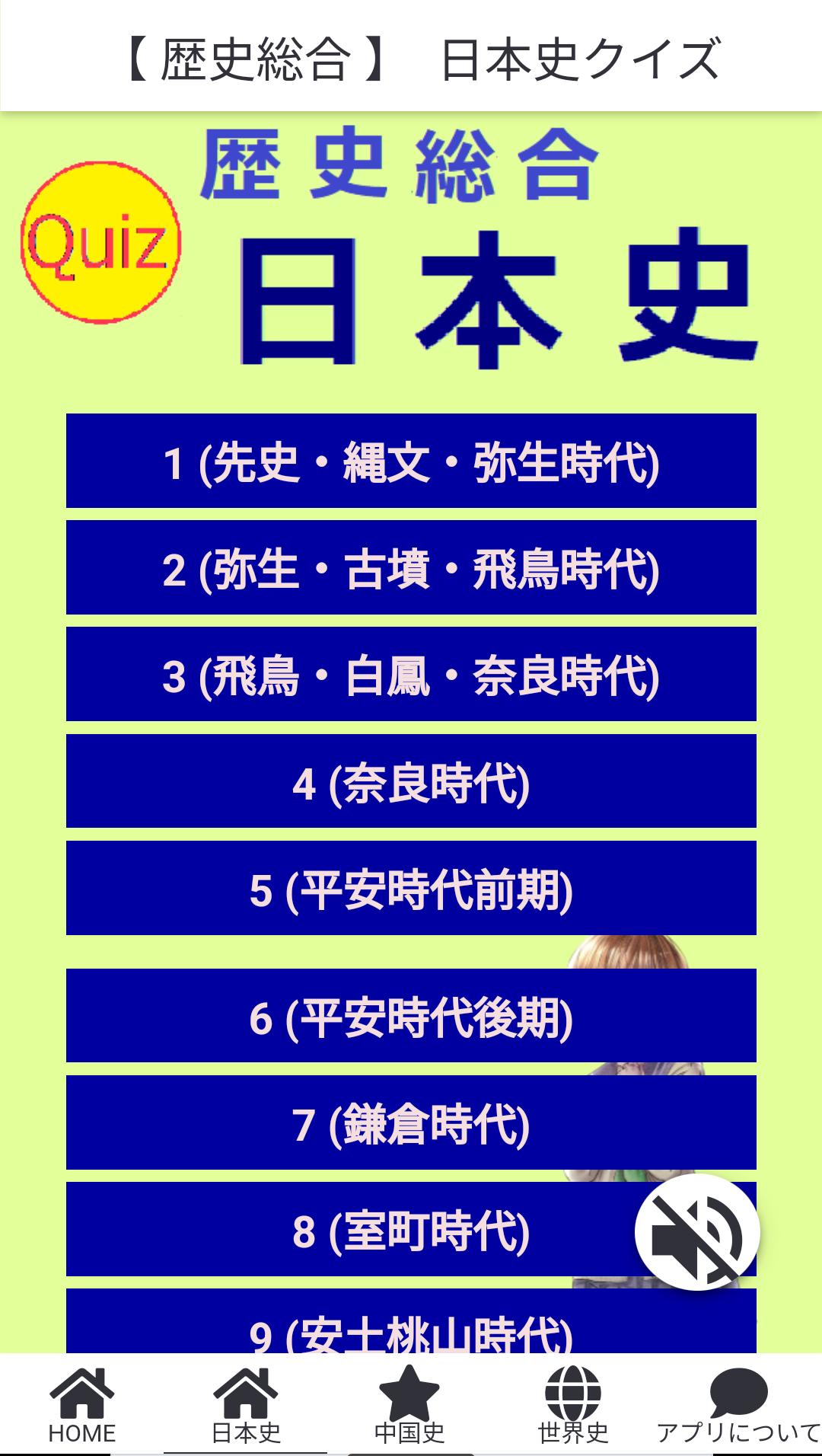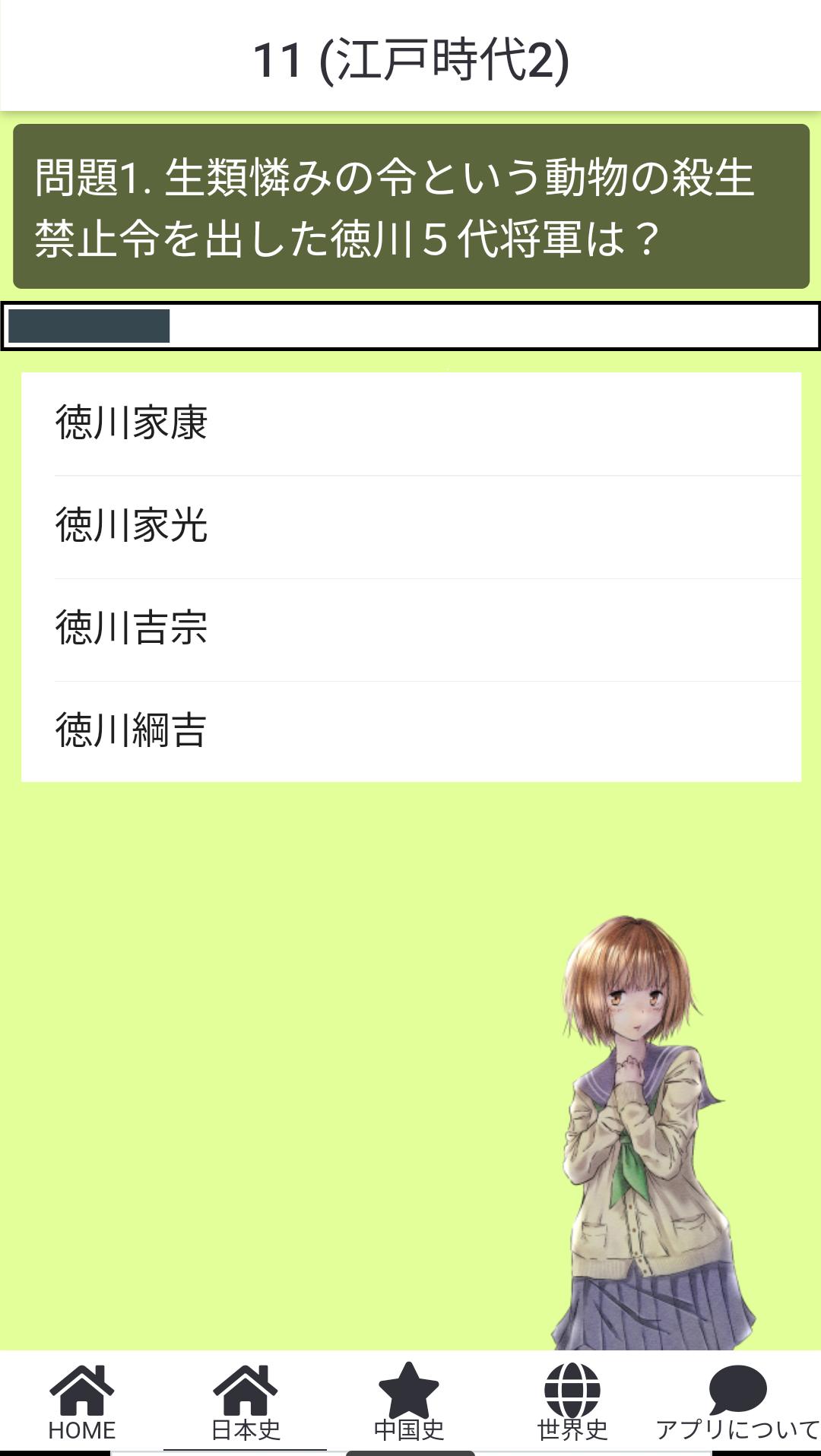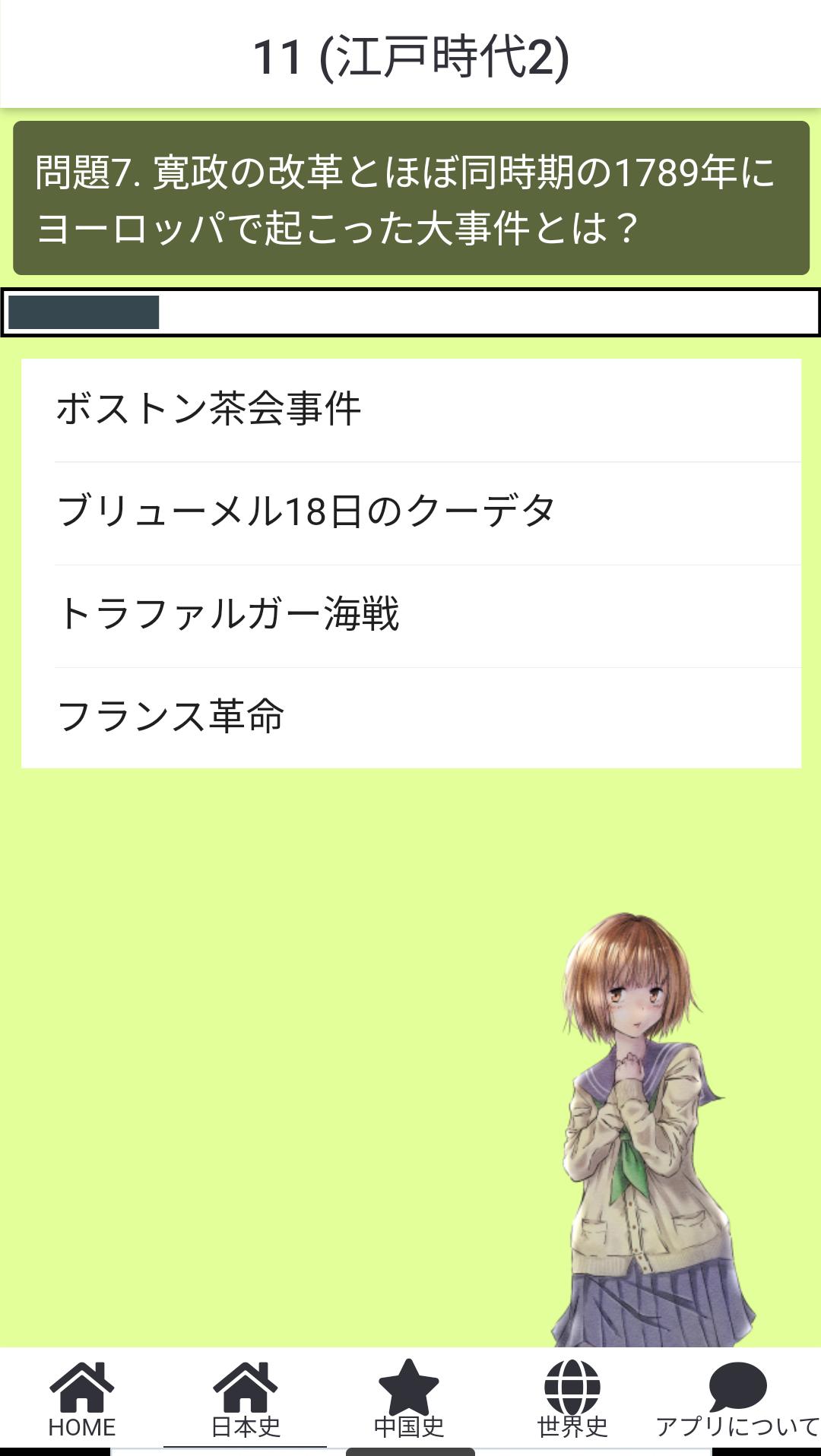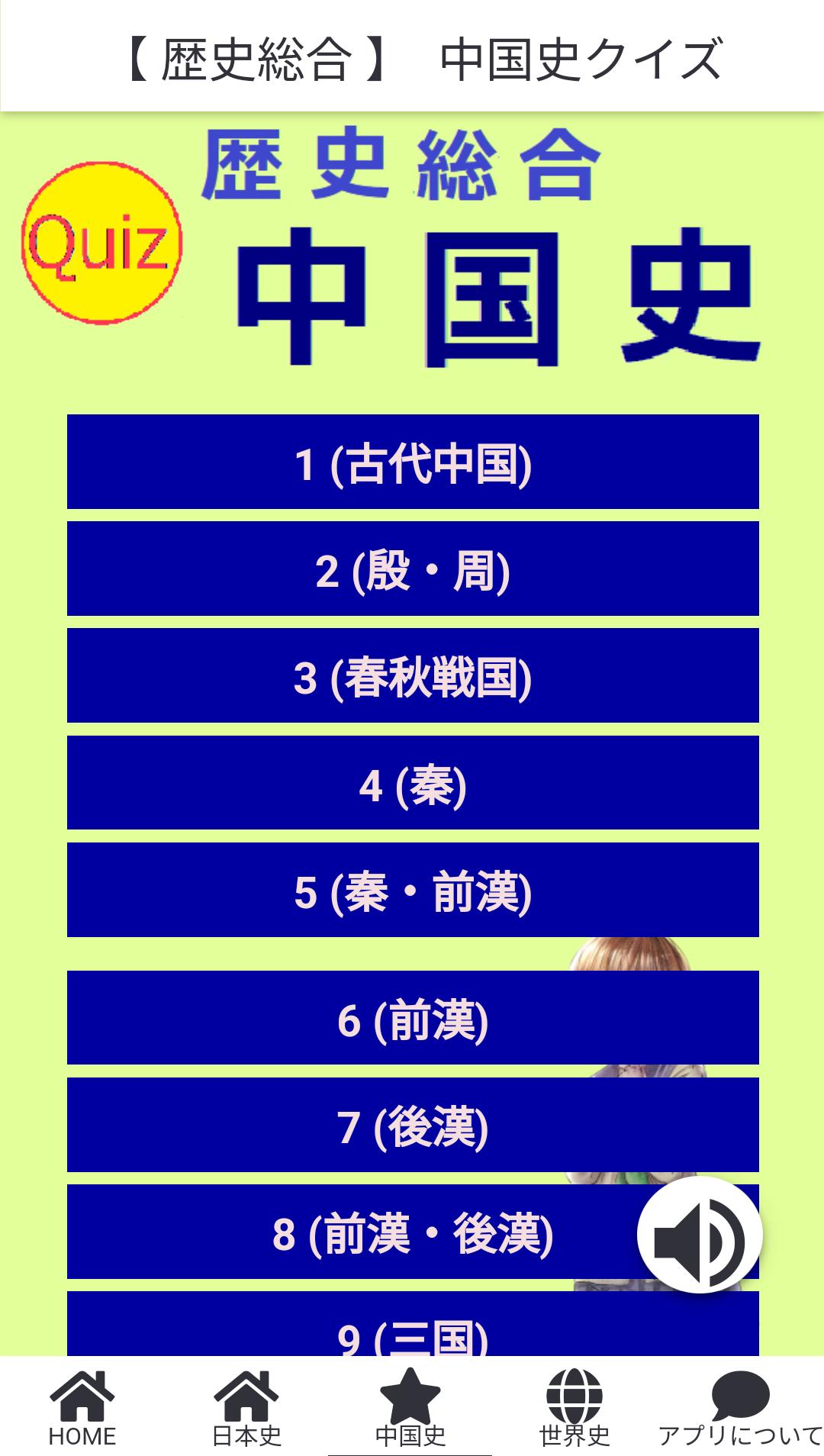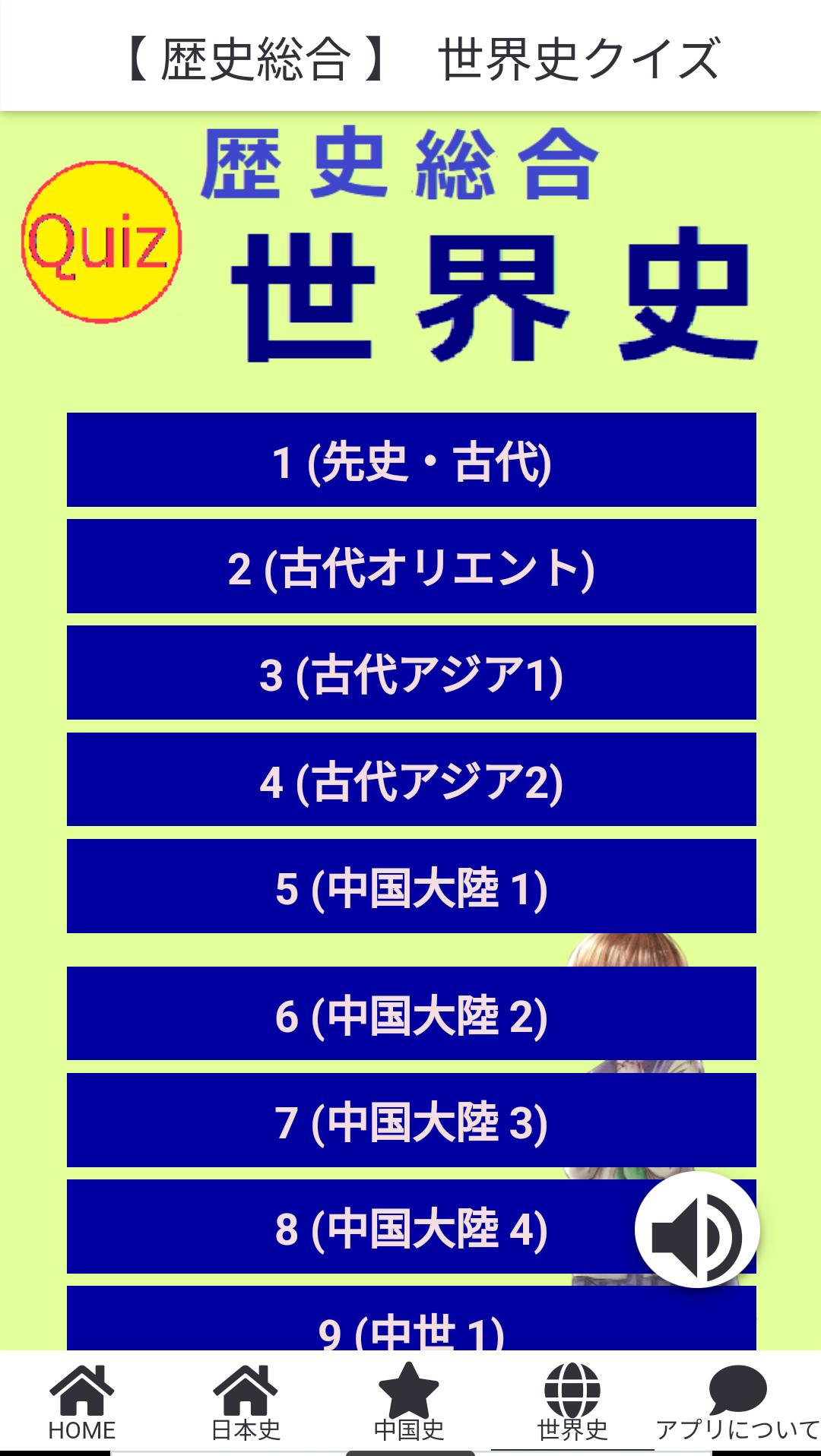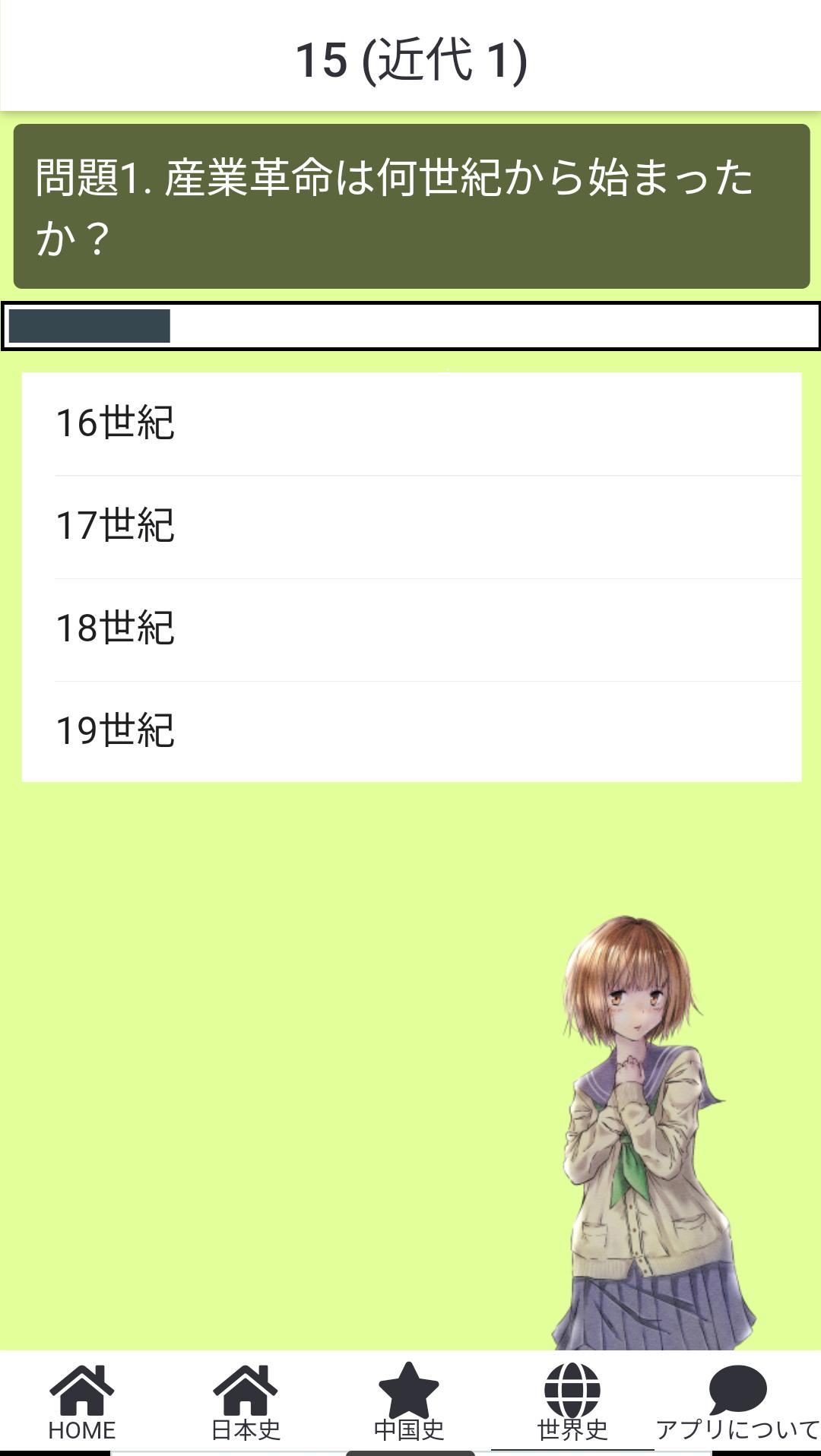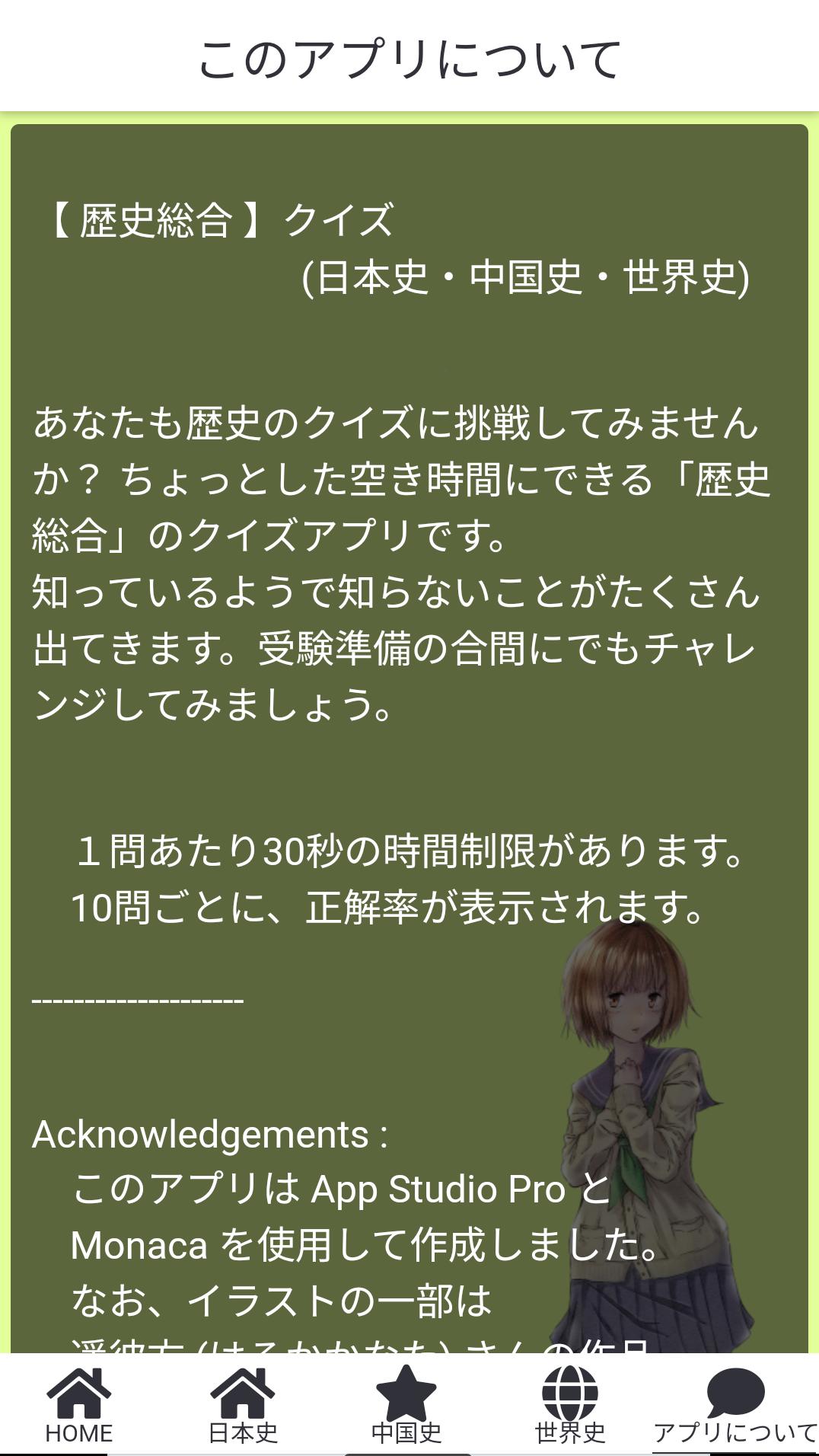This app is a quiz app about "history synthesis" such as Japanese history, Chinese history, and world history.
Would you like to take a history quiz? It is a quiz app of "History synthesis" that you can do in a little free time.
There are many things that seem to be known but not known. Let's challenge even while preparing for the exam.
There is a time limit of 30 seconds per question.
The correct answer rate is displayed for every 10 questions.
What's New in the Latest Version 1.0.17
Last updated on Jun 22, 2024
一部の記述を修正しました。
歴史総合, or "Comprehensive History" in Japanese, refers to a holistic approach to studying history, encompassing a wide range of periods, regions, and themes. It moves beyond rote memorization of dates and names to foster critical thinking, analytical skills, and a deeper understanding of the interconnectedness of past events and their impact on the present. Rather than focusing solely on political or military history, 歴史総合 embraces social, economic, cultural, and intellectual history, providing a more nuanced and complete picture of the past.The study of 歴史総合 typically begins with an overview of world history, tracing the development of civilizations from ancient times to the modern era. This broad perspective helps students understand the global context in which specific events occurred and appreciate the diverse experiences of different cultures. The curriculum then delves into Japanese history, examining its unique trajectory and its interactions with the wider world. This exploration encompasses the ancient origins of Japanese culture, the rise of feudalism, the Tokugawa shogunate, the Meiji Restoration, and Japan's role in the 20th and 21st centuries.
A key component of 歴史総合 is the emphasis on historical thinking skills. Students are encouraged to analyze primary and secondary sources, evaluate different interpretations of historical events, and construct their own arguments based on evidence. This approach fosters critical thinking and helps students develop the ability to discern bias, identify perspectives, and understand the complexities of historical narratives. By engaging with diverse sources, students gain a deeper appreciation for the challenges historians face in reconstructing the past and the importance of considering multiple viewpoints.
The curriculum also emphasizes the connections between past and present. Students are encouraged to reflect on how historical events have shaped contemporary society and to consider the lessons that can be learned from the past. This focus on relevance helps students understand the significance of historical study and its application to current issues. By examining the long-term consequences of past decisions, students can develop a more informed perspective on contemporary challenges and contribute to a more nuanced understanding of the world around them.
Furthermore, 歴史総合 promotes interdisciplinary learning. By connecting history with other subjects such as geography, economics, political science, and sociology, students gain a more comprehensive understanding of the forces that have shaped human societies. This interdisciplinary approach helps students develop a more holistic worldview and appreciate the interconnectedness of different fields of knowledge. It also encourages them to think critically about the complex relationships between different aspects of human experience.
The study of 歴史総合 is not simply about acquiring knowledge of the past; it is about developing essential skills for navigating the present and future. By fostering critical thinking, analytical skills, and an understanding of the interconnectedness of past, present, and future, 歴史総合 equips students with the tools they need to become informed and engaged citizens. It encourages them to think critically about the world around them, to evaluate different perspectives, and to contribute to a more just and equitable future. Through the study of history, students gain a deeper understanding of themselves, their communities, and their place in the world. This understanding is essential for fostering empathy, promoting cross-cultural understanding, and building a more peaceful and sustainable future. Ultimately, 歴史総合 aims to cultivate informed and responsible citizens who are equipped to address the challenges of the 21st century and beyond. It empowers students to become active participants in shaping the future by drawing on the lessons of the past and applying them to the complex issues of the present.
This app is a quiz app about "history synthesis" such as Japanese history, Chinese history, and world history.
Would you like to take a history quiz? It is a quiz app of "History synthesis" that you can do in a little free time.
There are many things that seem to be known but not known. Let's challenge even while preparing for the exam.
There is a time limit of 30 seconds per question.
The correct answer rate is displayed for every 10 questions.
What's New in the Latest Version 1.0.17
Last updated on Jun 22, 2024
一部の記述を修正しました。
歴史総合, or "Comprehensive History" in Japanese, refers to a holistic approach to studying history, encompassing a wide range of periods, regions, and themes. It moves beyond rote memorization of dates and names to foster critical thinking, analytical skills, and a deeper understanding of the interconnectedness of past events and their impact on the present. Rather than focusing solely on political or military history, 歴史総合 embraces social, economic, cultural, and intellectual history, providing a more nuanced and complete picture of the past.The study of 歴史総合 typically begins with an overview of world history, tracing the development of civilizations from ancient times to the modern era. This broad perspective helps students understand the global context in which specific events occurred and appreciate the diverse experiences of different cultures. The curriculum then delves into Japanese history, examining its unique trajectory and its interactions with the wider world. This exploration encompasses the ancient origins of Japanese culture, the rise of feudalism, the Tokugawa shogunate, the Meiji Restoration, and Japan's role in the 20th and 21st centuries.
A key component of 歴史総合 is the emphasis on historical thinking skills. Students are encouraged to analyze primary and secondary sources, evaluate different interpretations of historical events, and construct their own arguments based on evidence. This approach fosters critical thinking and helps students develop the ability to discern bias, identify perspectives, and understand the complexities of historical narratives. By engaging with diverse sources, students gain a deeper appreciation for the challenges historians face in reconstructing the past and the importance of considering multiple viewpoints.
The curriculum also emphasizes the connections between past and present. Students are encouraged to reflect on how historical events have shaped contemporary society and to consider the lessons that can be learned from the past. This focus on relevance helps students understand the significance of historical study and its application to current issues. By examining the long-term consequences of past decisions, students can develop a more informed perspective on contemporary challenges and contribute to a more nuanced understanding of the world around them.
Furthermore, 歴史総合 promotes interdisciplinary learning. By connecting history with other subjects such as geography, economics, political science, and sociology, students gain a more comprehensive understanding of the forces that have shaped human societies. This interdisciplinary approach helps students develop a more holistic worldview and appreciate the interconnectedness of different fields of knowledge. It also encourages them to think critically about the complex relationships between different aspects of human experience.
The study of 歴史総合 is not simply about acquiring knowledge of the past; it is about developing essential skills for navigating the present and future. By fostering critical thinking, analytical skills, and an understanding of the interconnectedness of past, present, and future, 歴史総合 equips students with the tools they need to become informed and engaged citizens. It encourages them to think critically about the world around them, to evaluate different perspectives, and to contribute to a more just and equitable future. Through the study of history, students gain a deeper understanding of themselves, their communities, and their place in the world. This understanding is essential for fostering empathy, promoting cross-cultural understanding, and building a more peaceful and sustainable future. Ultimately, 歴史総合 aims to cultivate informed and responsible citizens who are equipped to address the challenges of the 21st century and beyond. It empowers students to become active participants in shaping the future by drawing on the lessons of the past and applying them to the complex issues of the present.

